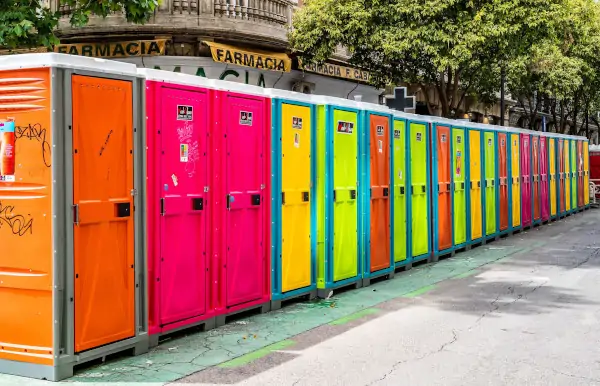In the world of event planning, sustainability is no longer an afterthought—it's becoming a central consideration from day one. The innovative EventMapStudio approach integrates  sustainability directly into the planning process, rather than treating it as a post-construction evaluation phase mostly implemented by an assessor walk-through.
sustainability directly into the planning process, rather than treating it as a post-construction evaluation phase mostly implemented by an assessor walk-through.
This shift in methodology mirrors Edwards Deming's revolutionary industrial philosophy that emphasized building quality into production processes rather than relying solely on end-of-line inspections. Let's explore how this parallel can transform how we create sustainable outdoor events.
From Inspection to Integration
When planning outdoor events, the traditional approach has often involved designing the event first, building it, then evaluating its environmental impact afterward, often by having a third-party assessor perform a walk-through of the event site, or even worse, a post-event walk-through. This reactive approach limits what can actually be changed and improved. This paradigm is sometimes mildly improved by providing the event producers with paper-pobased sustainability checklists at the onset of the design phase.
By contrast, the EventMapStudio tool incorporates sustainability principles into the very foundation of event planning by integrating Sustainability into the event design tool itself. Just as Deming argued that quality should be woven into manufacturing processes rather than inspected for at completion, sustainability becomes part of the event's DNA, not a checklist item, and definitely not something you look at AFTER the product/event has been built.
Why This Approach Works Better
Integrating sustainability from the beginning delivers multiple benefits:
- Proactive problem-solving: Issues are identified and addressed before they become costly or impossible to change
- Resource optimization: Materials, energy, and space are allocated efficiently from the start
- Holistic thinking: Every decision considers its environmental impact, creating a cohesive sustainable event
Practical Applications
Event organizers using this integrated approach might:
- Select venues based on accessibility by public transportation
- Design site layouts that minimize waste production and energy usage
- Choose vendors with sustainable practices and local sourcing
- Plan for comprehensive waste management systems before the first guest arrives
- Integrate sustainability principle before the first tent has been setup
The Dewey Connection
Edwards Deming's philosophy challenged the industrial status quo by arguing that quality couldn't simply be inspected into products—it had to be built into the production process itself. Similarly, truly sustainable events cannot be created through post-construction evaluations alone; sustainability must be a guiding principle from conception to execution.
Looking Forward
As climate concerns intensify and attendees increasingly demand environmentally responsible experiences, event planners who adopt this integrated approach will deliver superior results. The EventMapStudio method represents the future of sustainable event planning—one where environmental considerations aren't afterthoughts but foundational elements of successful events.
By embracing this philosophy, we move beyond simply evaluating sustainability after the fact and toward creating events that are sustainable by design.
Additional readings
Andrea Gabor (1992) The Man Who Discovered Quality: How W. Edwards Deming Brought the Quality Revolution to America—The Stories of Ford, Xerox, and GM
Deming, W. Edwards (1964) [1943]. Statistical Adjustment of Data
Deming, W. Edwards (2012). The Essential Deming: Leadership Principles from the Father of Quality

Blog comments